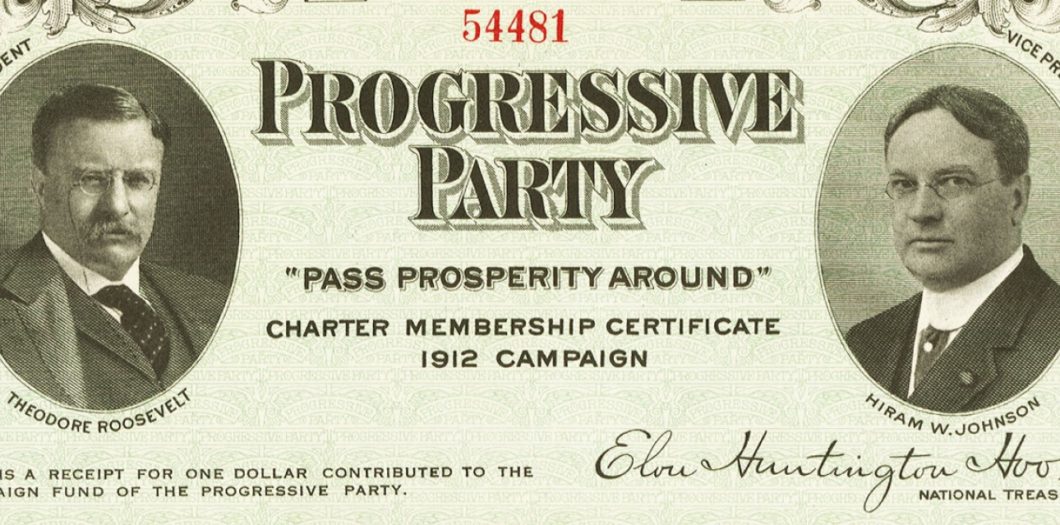Progressivism and the Historians
I thank Richard Gamble for his generous review of my new book, Progressivism: The Strange History of a Radical Idea. Gamble is a historian, and my book is nothing less than a full-frontal assault on historians and the discipline of history as a whole. Gamble correctly notes my emphasis on progressivism as the fusion of “radicalized millennial Christianity and modern statism,” and the fact that the bigwig American historians of the 20th century downplayed, misrepresented, or simply missed this reality. In so doing they were guilty of a complicity of understatement. And they were also utterly incapable of identifying progressivism’s hostility to the founders’ Constitution. This is because they were far from impartial interpreters, but were rather fellow-travelers of the progressive movement.
Gamble agrees with my indictment of these historians and allows that my book is an important “call to action” to right their wrongs. He disagrees with me insofar as he claims I promote a “Straussian narrative,” and more particularly a “Claremont narrative.”
That I am associated with the Claremont or “West Coast” school of Straussian political thought is true, as far as it goes (last I checked, Wikipedia identified me as a West Coast Straussian, so it must be true), but it’s not clear how far this gets Gamble in his critique of my revisionist interpretation of American history and historiography. Whatever the views of others associated with the Claremont school of thought, my arguments are my own, and they are not quite as Gamble portrays them.
He claims I ignore attacks on progressivism and the New Deal made by the “New Conservatives of the 1950s” who “did battle with Progressivism long before the emergence of Straussian critiques.” He does not name these conservatives or say exactly what their attacks were, so the reader is left to surmise. While it is certainly true that much of modern American conservatism was born in that period, it is also true that the founders’ Constitution as the founders understood it—my central concern—was incidental to that conservatism. With few exceptions, those conservatives were worried about the very real menace of communism abroad, and what they identified as centralizing, ideological tendencies at home. But on the whole, they did not recognize what the progressives themselves recognized: that they—the progressives—were promoting new “natural laws” of evolutionary growth and change, to supplant the outmoded, fixed “natural rights” that the founders insisted were the principled basis of republican self-government. A new conception of the “natural” was central to the progressives, from philosophers such as John Dewey to political actors such as Woodrow Wilson. As I detail in my book, it was in fact a new generation of political theorists—not historians, and not the “New [now perhaps old] Conservatives”—who recovered exactly what the progressives were rebelling against.
It is also true, as Gamble notes, that American progressivism had antecedents; it did not emerge ex nihilo after the Civil War. I certainly agree with this. What intellectual movement does not have antecedents? I would place its antecedents well before anything in American history. Yet the fact is, in America, the main ingredients came together to form the potent intellectual cocktail known as progressivism just after the age of Lincoln. A new, coherent intellectual movement was born—a fact which the progressives of the day were unafraid to proclaim.
Gamble further claims that “understanding and explaining the adoption of [German] ideas” in early America is “indispensable” to understanding Progressivism, and he says that I have not put enough emphasis on such ideas. As I argue in the book (and have argued for many years), however, American progressivism had—and continues to exhibit—more indigenous roots than German idealism. It was never simply a “foreign virus” wafting in from Berlin. Too much of progressivism, then and now, is traceable to American social Darwinism and pragmatism, rather than to foreign influences. As I have said elsewhere, the age of high Hegelianism (or relatively high, by American standards) died with Woodrow Wilson on February 3, 1924.
Gamble also says that the logic of my argument “depends on the Founding not being indebted much to the colonial and British constitutionalism that preceded it.” I certainly did not say, and would not say, any such thing. That the American Founding is a refraction, as it were, of English constitutionalism through republican lenses is something I have long maintained. This in no way diminishes the originality of American republicanism, especially spread as it was, and is, across an extended sphere wherein the people are sovereign. It does suggest that America would not have been America had it not been settled largely by those familiar with, sympathetic to, and willing to draw the best from, the English constitutional tradition (not to mention traditional Christianity).
I agree with Gamble that progressivism, in its various incarnations, is at war with much more than the American constitutional tradition: it is at war with the idea of original sin, and therefore with permanent limits on political power. It is at war with human nature. I would maintain, however, that this war comes to sight clearly, perhaps most clearly, in American history. But understanding it, and just what the stakes of the war are, requires understanding the founders and their progressive critics on their own terms. And when it comes to this, many historians continue to have blind spots.

